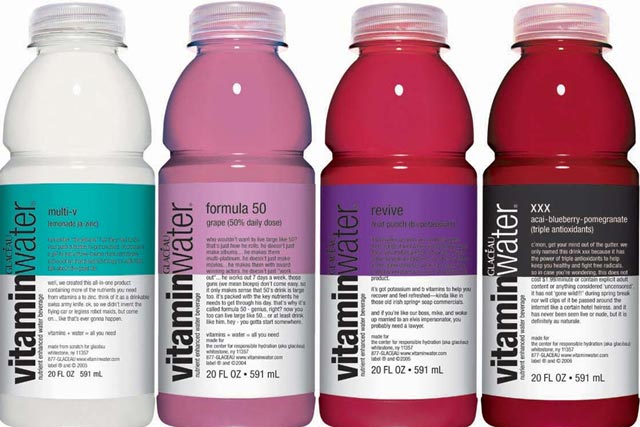At this point, the aged relative would give my parents a hard stare as if they were depriving – even damaging – their children by raising them not to spoon the white stuff in with gusto.
Of course, my grandparents came from a time and a place (Lancashire) where sugar was seen as a staple and an essential accompaniment to tea and coffee.
And to be fair, their diet was so generally lacking in over-refined, over-sweetened products that they were never going to get fat – even if their only exercise was attending Mass and playing bridge.
Times have changed, eh? Personally, I’ve never been a fan of fizzy, sugary drinks. But some people like them and some people have to market them.
In our body-image-conscious-Tom-Cruise-smile age, what is Coca-Cola to do? Diversify.
Start selling water that isn’t fizzy and brown, but clear and still. Even better, throw in some vitamins. Then we can call it "nutritious".
Well, you can until someone points out that you’ve also put several teaspoons of sugar (or about a quarter of the accepted daily allowance) into your confection.
So now, thanks to the ASA, .
The company was "disappointed" at the ruling and even said: "We have always been completely transparent that the drinks contain 23g of sugar in each 500ml bottle, which has been prominently labelled on-pack since launch."
That is disingenuous to say the least. Soft drinks manufacturers are obliged to clearly list the ingredients of their products. Look at it another way...
Imagine if Coca-Cola had called their baby Vitamin Sugar Water.
As the detail of the ASA ruling points out, other products (even whole fruit drinks) may be sweeter, but the size of the Vitaminwater bottle, combined with the sugar content and the advertised claim, are misleading.
It seems that Coca-Cola can’t kick the sugar habit. If that’s the case, then maybe they should put a smile on all our faces by being a bit more upfront about their addiction.


